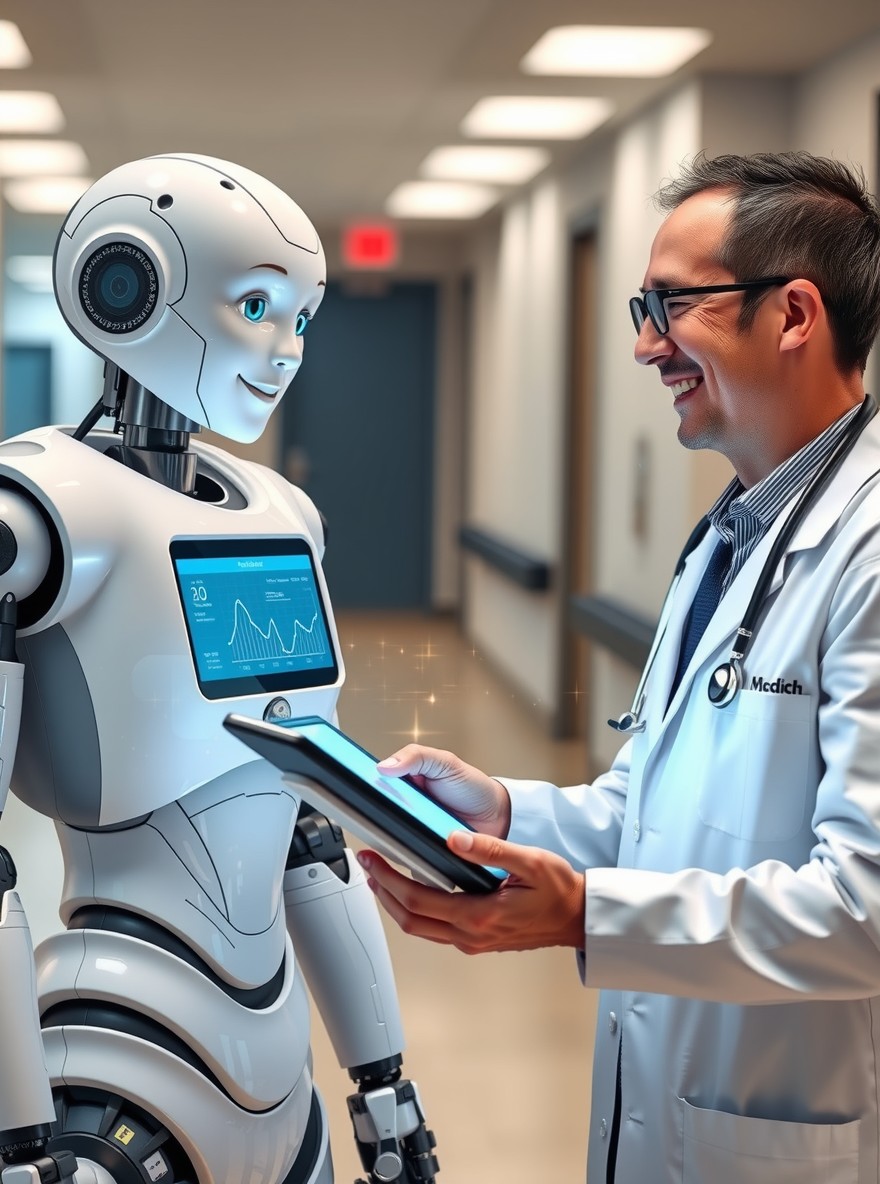Healthcare Industry
Key Challenges in the Healthcare Sector
Overburdened Healthcare Professionals
Healthcare providers often face overwhelming workloads, leading to burnout and reduced quality of patient care.
Inaccurate Diagnoses and Treatment Plans
Human error and insufficient data integration can lead to misdiagnoses and ineffective treatment strategies, threatening patient health.
Data Management and Accessibility Issues
Fragmented health records and disparate systems hinder access to patient information, making it challenging to provide cohesive and timely care.
Solutions
Innovative AI and Data Solutions for Healthcare

AI-Powered Diagnostics
Leverage machine learning algorithms and image recognition to analyze medical data and images, leading to more accurate diagnoses and faster treatment decisions.
Learn More →Automated Administrative Solutions
Implement AI-driven tools for scheduling, billing, and data entry to reduce the administrative burden on healthcare staff, allowing them to focus more on patient care.
Integrated Patient Data Platforms
Create unified data systems that consolidate patient records and clinical data from various departments, improving accessibility and care coordination.
Predictive Analytics for Patient Outcomes
Utilize predictive modeling to forecast patient health trends and risks, enabling proactive interventions and personalized treatment plans.
Benefits
Driving practical business outcomes
Elevated Diagnostic Accuracy
AI-enhanced diagnostics streamline evaluations and minimize human errors.
Enhanced Patient Experience
Faster and more accurate treatment leads to improved patient satisfaction and trust in the healthcare system.
Reduced Administrative Burden
Automation frees up healthcare professionals to concentrate on patient care rather than paperwork.
Informed Decision-Making
Real-time access to comprehensive patient data amplifies informed clinical decisions, improving treatment effectiveness.
Proactive Patient Care
Predictive analytics enable early identification of health issues, promoting preventive measures and better health management.
Cost Reductions
Operational efficiencies and reduced errors yield significant cost savings for healthcare facilities, allowing for redirected investments in patient care.
Elevated Diagnostic Accuracy
AI-enhanced diagnostics streamline evaluations and minimize human errors.
Enhanced Patient Experience
Faster and more accurate treatment leads to improved patient satisfaction and trust in the healthcare system.
Reduced Administrative Burden
Automation frees up healthcare professionals to concentrate on patient care rather than paperwork.
Informed Decision-Making
Real-time access to comprehensive patient data amplifies informed clinical decisions, improving treatment effectiveness.
Proactive Patient Care
Predictive analytics enable early identification of health issues, promoting preventive measures and better health management.
Cost Reductions
Operational efficiencies and reduced errors yield significant cost savings for healthcare facilities, allowing for redirected investments in patient care.







